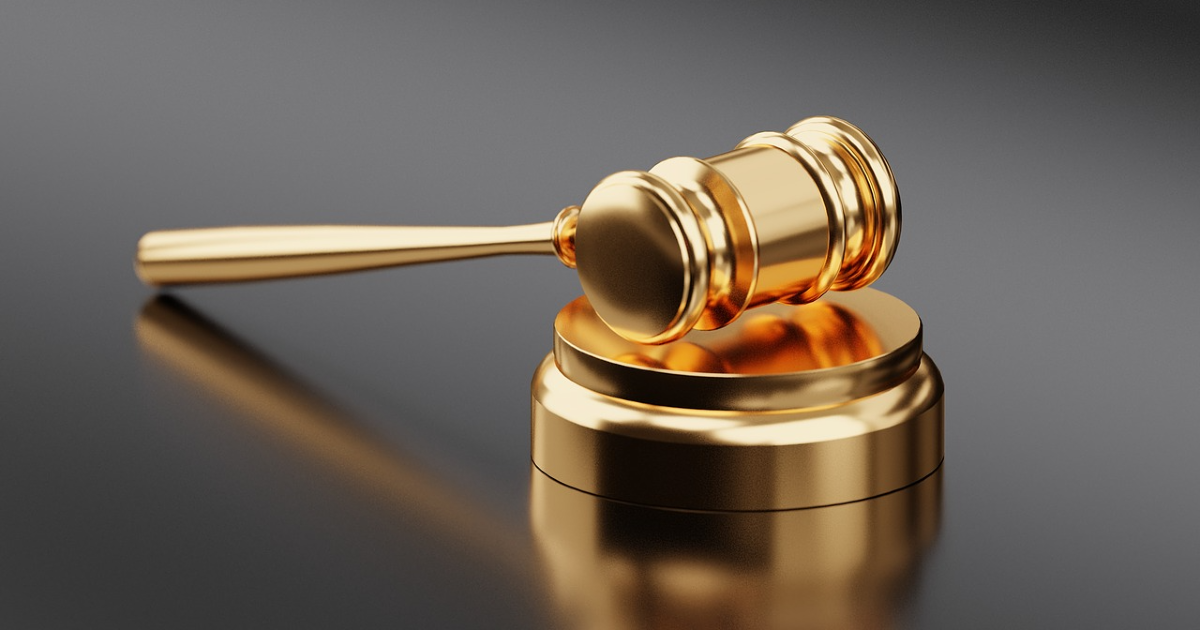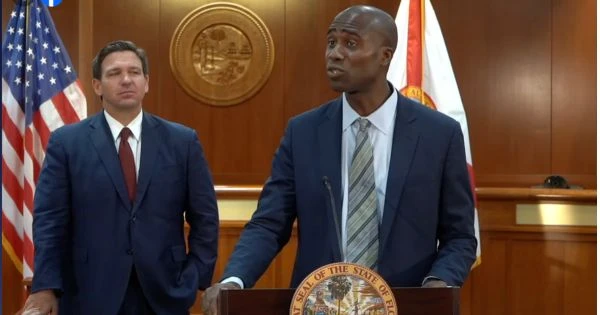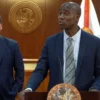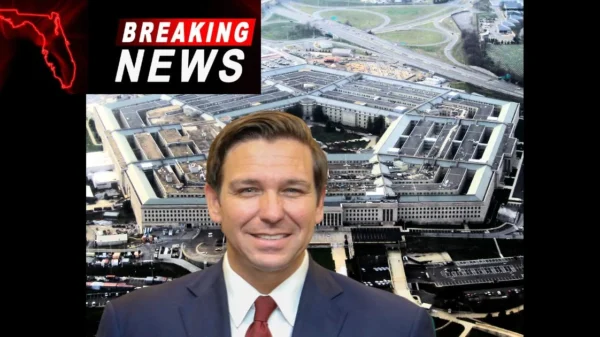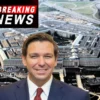Donald Trump is now under indictment in the federal capital on charges alleging that he tried to obstruct the 2020 election. The trial will take place in Washington, D.C. Is that reasonable? From a partisan perspective, of course, the District leans heavily Democrat, and Trump is a Republican. That cannot help the former president’s case. But there is another concern that might apply more generally to trials on charges relating to the working of the federal government.
The Sixth Amendment to the Constitution secures the right to a jury trial. In criminal cases, “The accused shall enjoy the right to a speedy and public trial, by an impartial jury of the State and district wherein the crime shall have been committed.” Note the language. “State and district.” It does not say “state or district.” That means that in Washington, D.C., the requirement that a trial be in the place where the alleged crime took place need not apply. To be sure, it ought to apply in common criminal cases – murder, theft, assault, and the like in cases relating to the daily lives of people in the district and businesses in the district. But that logic would not necessarily apply in cases relating to the operation of the government.
Article III of the Constitution, which creates the judicial branch, notes that if an alleged crime is “not committed within any State, the Trial shall be at such Place or Places as the Congress may by Law have directed.” In other words, Congress has discretion to set the venue for trials relating to alleged crimes in the federal district.
There is a good argument that in a case in which a high public official is charged, and/or in cases in which the regular operation of the federal government is at issue, Congress ought to use its discretion to set the trial outside of Washington, D.C., among the American people, as opposed to under the eyes and influence of the government that is alleging it has been attacked.
This is the case for two reasons. Normally, the argument for a trial “in the vicinage” (aka in the vicinity of the crime) applies to both prosecutor and prosecuted. The crime is against the peace of the jurisdiction, and, as such, the jurisdiction has the right to punish the crime, if proven. And, on the other side, a local trial makes it more likely that the accused can find witnesses and evidence that will help his side. In colonial British history, local juries were also a protection against overweening British officials.
That logic does not really apply to charges relating to obstructing the workings of the federal government, and other like cases. Why? The federal district is a city insofar as it is a place where people live full time. Hence, we citizens of Washington D.C. (my place of residence) have the right to try people who break the peace of the city, insofar as it is a jurisdiction like others in the U.S. But Washington, D.C. is also the seat of the federal government. As such, it is the representative of all the states and localities of the United States. In that sense, it is not like any other jurisdiction in the nation. It is a composite quilted out of the nation as a whole. And it is also true that, as great historians like Jack P. Greene have noted, our federal government assumed from the start most of the prerogatives that the king had before the American Revolution. That is precisely why the federal district is a location set apart in the Constitution. In a high profile political trial, too many judges and potential jurors are, in essence, likely to be interested parties.
Among the charges against the king in the Declaration of Independence are charges attacking the king “For transporting us beyond seas, to be tried for pretended offenses.” More largely, the king and Parliament had passed bills (acts of “pretended legislation” according to the Declaration, for we Americans denied that Parliament had the right to pass such bills) that took colonists away from their colonies and transported them to jurisdictions in which the king’s courts were more likely to convict them. In other words, the king violated the right to have a speedy and local trial. That would seem to indicate that the trial always ought to be in the jurisdiction where the alleged crime took place. But note that this is the opposite case of the one we are discussing here.
To put it in the framework of the American Revolution, this is more like the situation of a colonist charged with a crime against the workings of Parliament, with the trial to take place in London. It is not the case of a colonist transported to London, or another venue outside his colony, for trial. In other words, it is not the kind of case where the logic of the need for a local trial would apply. To be sure, the king would want a trial in sight of his palace, but for that very reason, it would be reasonable to have the trial elsewhere.
As Washington has grown from a political village to what is now an imperial center, the danger of Washington behaving like a national court has grown. That the people of Washington, D.C. approved the team name “Commanders” for the local football team (the team’s president says that they chose the name because it “broadly resonated with our fans”) says much about the self-image of today’s Washington, D.C. And it is for that very reason that in cases relating to the national political process, the jurisdiction of Washington, D.C. cannot be regarded as a neutral venue for a trial. The judges and jurors are too likely to be interested parties in the case.
To address this concern, and to ensure that we the people have an additional check on the abuse of the legal process in the nation’s center, Congress should exercise its constitutional discretion and set up a system to assign jurisdiction for high profile political cases by lottery to jurisdictions across the nation. Until then, judges, if they are fair minded, should consider changing the venue in any such trial before Congress makes such a change. By highlighting the degree to which official Washington, D.C. is a composite of the republic as a whole, such a law might also be a useful reminder that the government works for we the people, and not the reverse, as all too many members of our governing class seem to believe nowadays.
Richard Samuelson is an American historian who is an associate professor of government at Hillsdale College, Washington, D.C., campus. This article was originally published by RealClearPolitics and made available via RealClearWire.



